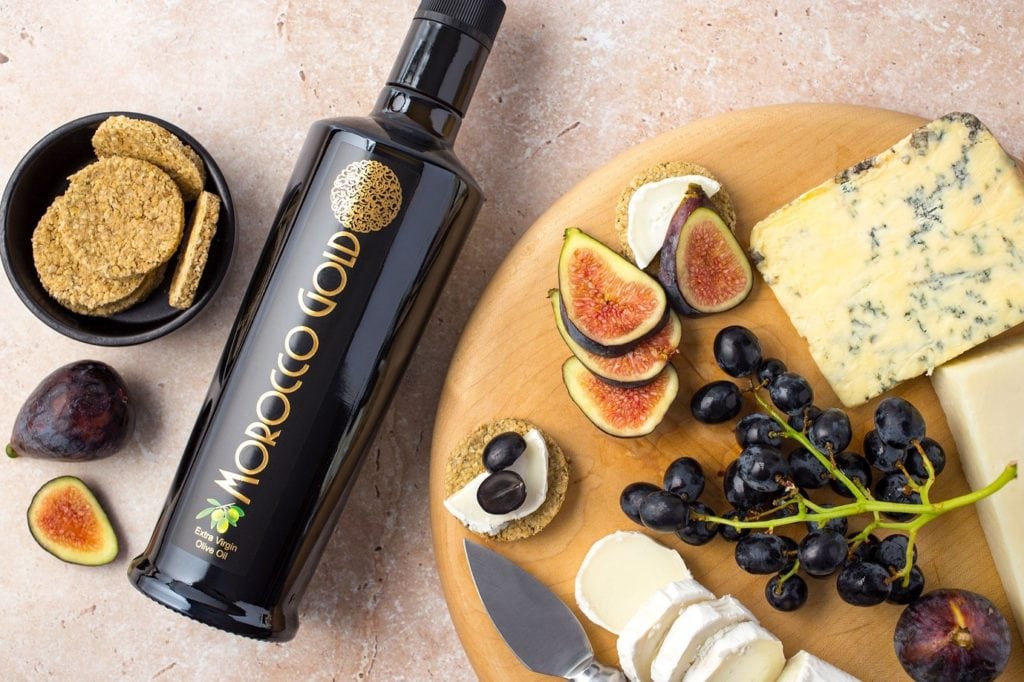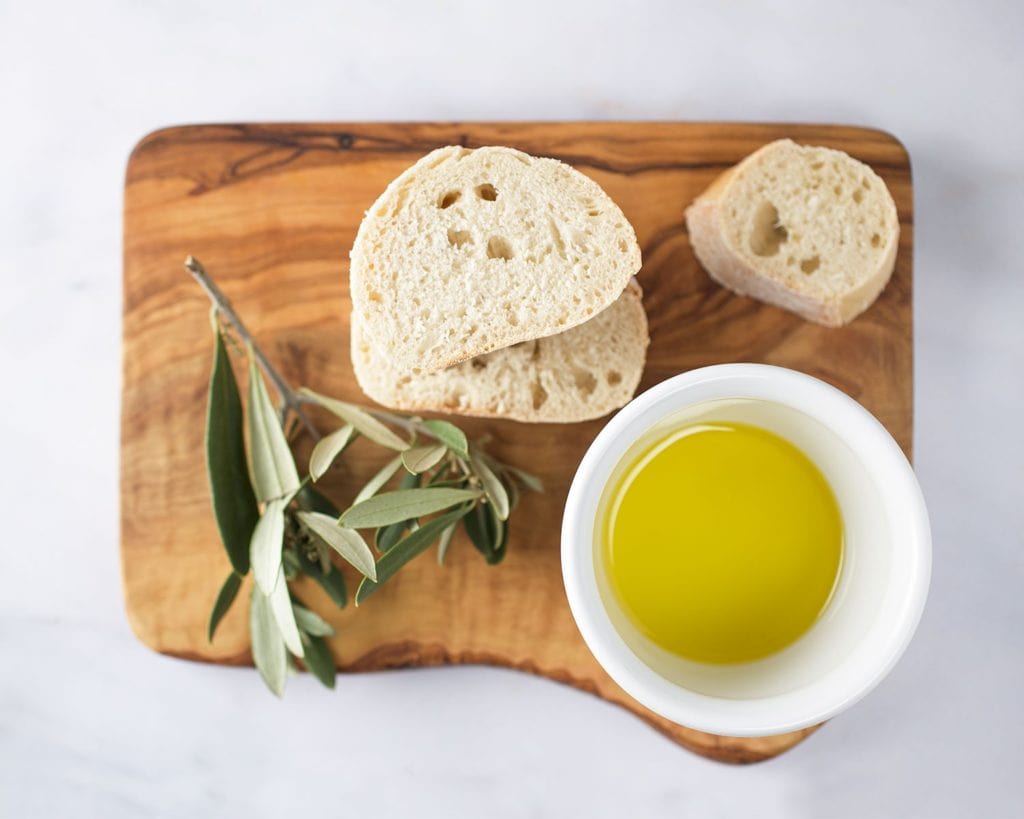How To Choose The Right Type Of Olive Oil
Is extra virgin olive oil the best olive oil for you?
Updated 24th January 2024

Summary:
- There are many different types of olive oil available to consumers, each with a different taste and production process.
- Extra virgin olive oil is the highest grade of olive oil due to how the fruit was grown, transported and harvested, how it was pressed into oil.
- High quality extra virgin olive oils also contain the antioxidants and polyphenols that give the health enhancing qualities associated with olive oil.
Contents:
- Why It’s Important To Choose The Best Olive Oil For Your Needs
- What Are The Different Types Of Olive Oil?
- What is Extra Virgin Olive Oil?
- Is Extra Virgin Olive Oil Healthier Than The Others?
- Why Choose Morocco Gold Extra Virgin Olive Oil?
- Have We Helped You Pick The Best Olive Oil For You?
Why It’s Important To Choose The Best Olive Oil For Your Needs
Olive oil is a healthy, delicious option to cook with, but not all olive oils are created equal.
The world of olive oil can be a complex one, with multiple types available and each one boasting a unique taste and set of health benefits. But why the differences? Well, it all comes down to the way in which the oil is made. For example, cold-pressed extra virgin olive oil like Morocco Gold is made by crushing the olives and extracting the oil without the use of heat or chemicals.
This process yields a robust, fruity flavor and a high concentration of antioxidants. On the other hand, other types of olive oil may undergo a refining process that strips away some of the natural flavors and health benefits. Ultimately, it’s up to the consumer to decide which type of olive oil is best for their needs and preferences.
It’s important to understand the different types of olive oil and choose the right one for your needs. In this blog post, we’ll discuss the different types of olive oil and which ones are best for cooking, in salads, and other uses. We’ll also provide tips on how to select the best quality olive oil.
What Are The Different Types Of Olive Oil?
Do you love olive oil? If you’re like most people, the answer is likely yes but do you know your extra virgin olive oil from your refined olive oil?
There are so many different types of olive oil, though, it can be tough to know which one to buy. In this post, we’ll take a look at the different types of olive oil and what each one is best for. Whether you’re looking for an everyday cooking oil or something a little fancier, we’ve got you covered!
Do you know your extra virgin olive oil from your refined olive oil? According to the International Olive Council, there are five different grades of olive oil, each with clearly defined standards. They are:
- Extra Virgin Olive Oil
- Virgin Olive Oil
- Refined Olive Oil
- Olive Pomace Oil
- Lampante Oil
- Why Morocco Gold Extra Virgin Olive Oil
1 What is Extra Virgin Olive Oil
Extra virgin olive oil is the highest quality olive oil you can get. Genuine extra virgin olive oil is rare and as a result is slightly more expensive.
The chemical characteristics of extra virgin olive oil (as with all vegetable oils) give an indication of the care with which it was made and stored: how the fruit was grown, transported and harvested, how it was pressed into oil, and how the oil was packaged and bottled. Stringent chemical analysis also helps to determine if the oil is adulterated in any way. The chemical standards for extra virgin olive oil are the highest of all the grades and, as such, offer a guarantee of quality.

The definition of extra virgin olive oil is very precise regards production methods, taste and chemical composition. To be certified as extra virgin, an olive oil must:
- Come from a single source, it is not mixed / blended with other olive oils, even if they are of extra virgin quality
- Come from the first pressing of fresh, young olives, normally within 24 hours of harvesting
- Be extracted purely by mechanical means at temperatures specifically below 28C.
- Have free fatty acid or acidity level (normally measured as oleic acid) of less than 0.8%.
- Be defect free and have a perfect taste and aroma.
Extra virgin olive oil is the highest grade and best tasting olive oil. The organoleptic (taste) characteristics of a high-quality extra virgin olive oil are typically:
Fruity
- It has pleasant spicy, fruity flavours characteristic of fresh ripe or green olives. Fruitiness varies with the variety of olive. Green fruit yields olive oils that are grassy and herbaceous.
- More mature, ripe fruit yields olive oils that are milder, aromatic, buttery and floral.
Bitter
- Creating a pleasant acrid flavour or sensation on the tongue
Pungent
- Creating a peppery sensation in the mouth and throat.
High quality extra virgin olive oils also contain the antioxidants and polyphenols that give the health enhancing qualities associated with olive oil.
Is Extra Virgin Olive Oil Healthier Than The Others?
If you’re looking for a healthier oil option, extra virgin olive oil may offer more health benefits than other oils on the market. Unlike refined oils, extra virgin olive oil is cold pressed, meaning it is extracted from the olives without using heat or chemicals. This process preserves the oil’s natural nutrients, including polyphenols.
These compounds provide antioxidant and anti-inflammatory properties, which can lower the risk of chronic diseases such as heart disease and cancer. While all types of olive oil contain beneficial nutrients, extra virgin olive oil is the best choice for those looking to reap the most health benefits from their oil.
- Virgin olive oil also comes from the first pressing but must have an acidity level of less than 2%. It is therefore of inferior quality to extra virgin olive oil. It’s flavour intensity can vary and its taste is milder than extra virgin olive oil.
- The higher level of acidity also means it’s shelf-life will not be as long as extra virgin olive oil
- These are olive oils that have been refined by using agents such as acids, alkalis and heat to extract as much oil as possible from the olive pulp that remains after the first pressing. The result is a fattier and more acidic oil which lacks taste, aroma and natural antioxidants found in extra virgin olive oil.
- Producers then need to add unrefined extra virgin or virgin olive oil to give refined olive oil some flavour, colour and aroma into the blend.
- Terms such as “pure” or “100% pure” or “Light” are made up terms used by large producers and supermarkets. If the label states “pure” or “100% pure” or “Light” then the olive oil is a refined oil lacking the taste, aroma and quality of extra virgin olive oil.
- The lowest grade of olive oil made from the by-products of extra virgin olive oil production. Olive skins, seeds and pulp are heated and the remaining oil is extracted using solvent. The result, pomace oil, is then put through a refining process, similar to pure or light olive oil.
- Pomace olive oil is bland and extremely low in antioxidants.
- Lampante oil comes from bad fruit or poor processing practices and has severe taste defects. It is not fit for human consumption until it has been refined.
Why Choose Morocco Gold Extra Virgin Olive Oil?
Morocco Gold comes from a single source, from the Beni-Mellal region of Morocco. The olives are harvested by hand, early in the season whilst the fruit is still young and green. The olives are handled with care and attention throughout the harvesting and pressing process to ensure that only the best olives are used for Morocco Gold.
Uniquely, we include the results of our chemical analysis for acidity, peroxide and ultra violet testing on each-and-every bottle of Morocco Gold so that our customers can see at a glance the guarantee of extra virgin olive oil quality.
Morocco Gold comes from the Picholine Marrocaine olive, which is characterised by its green, fruity flavour, with hints of almond and herbs, also it’s high level of polyphenols that give Morocco Gold it’s health enhancing qualities as well as it’s taste.
It does not have the ‘aggressive’ pungency of some extra virgin olive oils, giving Morocco Gold a well-balanced and satisfying finish. This also makes Morocco Gold highly versatile in how it can be used, either taken directly, dipping with bread, drizzling over salads, sautéing vegetables, the uses are limitless.
Have We Helped You Pick The Best Olive Oil For You?
So, what is the best olive oil for you? It depends on your needs and preferences. If you’re looking for a versatile oil that can be used in both cooking and salads, an all-purpose olive oil would be a good choice. If you want an oil with a milder flavor that’s great for dipping bread or using in dressings, then go with an extra virgin olive oil. No matter which type of olive oil you choose, you can enjoy the many health benefits they offer. Thanks for reading our guide to the different types of olive oils! We hope it has helped you make a decision about which one is right for you.
